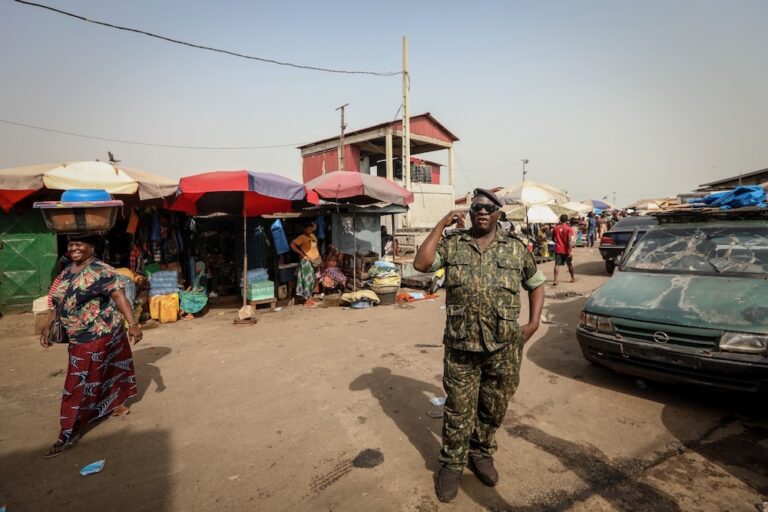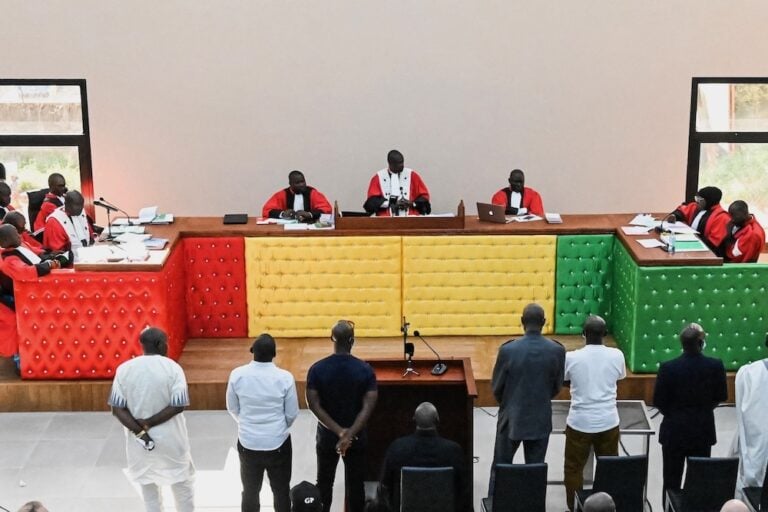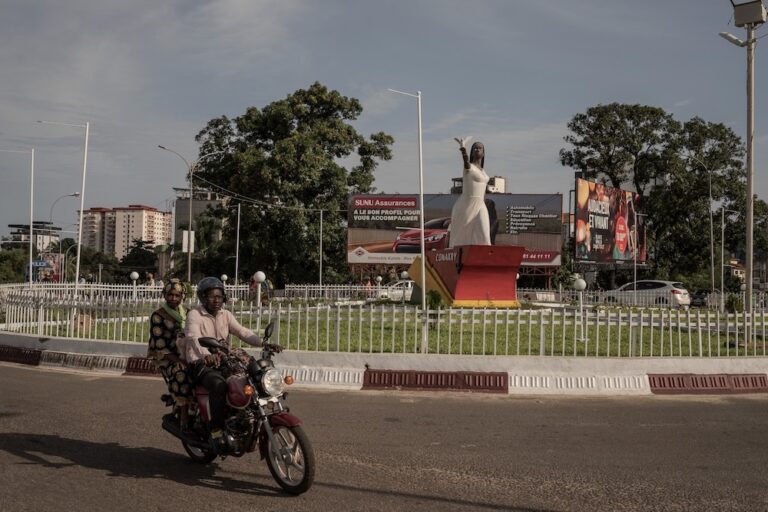Protesters were beaten during a demonstration against Waymark, a software firm that the Guinean government chose to compile a new voter register. Opposition leaders say that Waymark is skewing the list to favour the ruling party.
On 18 April, 2013, members of Guinea’s National Police Force fired tear gas and live bullets to disperse a large group of opposition demonstrators who were protesting against the selection of a South African software firm, Waymark, to compile a new voter register. The incident occurred close to Gbessia Airport in Conakry.
Many demonstrators were hospitalised, while hundreds, including some leaders of opposition parties, were arrested.
According to the Media Foundation for West Africa (MFWA)’s correspondent, two leaders, Aboubacar Sylla, spokesperson for the opposition coalition and Charles Tolno, leader of the People’s Party of Guinea (PPG), were physically assaulted by police officers before being detained for hours at the Mobile Intervention and Security Company (CMIS) in Conakry.
“… they beat our bodyguards mercilessly, broke all the windows of our car and warped the doors. They abused us in a very brutal way when they extracted us from the car and took our money and phones … when we got to CMIS, I received a blow to the chest and I was injured, while the Colonel was looking on,” Tolno narrated his ordeal.
Sylla added that the police broke the windshield with large stones and smashed the hood using rifle butts. There were even traces of blood on the vehicle seats.
The demonstration, organized by the Coalition of Opposition Parties, followed a 13 April declaration by President Alpha Conde that 30 June has been slated for the country’s long-delayed parliamentary elections. He also confirmed the recruitment of Waymark to revise the voter register.
Opposition members are demanding that a different firm be contracted. According to them, Waymark – which was selected by the ruling party – is skewing the list to favour the ruling party and its leader, President Alpha Conde, MFWA’s correspondent reported.
Since last year, Guinea’s already tense political and social climate has been heightened with frequent and rampant clashes between police and protesters, which have resulted in deaths and injuries to citizens.
MFWA calls on Said Djinnit, the UN-appointed international mediator for the Guinean crisis, to address this situation as he starts negotiations with various electoral actors, before it escalates.


